Intentar ORO - Gratis
The Dangers Of Polyphagous - Shot Hole Borer
The Gardener
|October 209
Although these pests may be tiny, the presence of Polyphagous Shot Hole Borer (PSHB) in South Africa is a massive cause for concern.

Geographically, this is the largest outbreak of PSHB in the world, affecting over 80 tree species in agricultural, commercial and urban sectors. The first local discovery was made in the KwaZulu-Natal National Botanical Gardens, and the beetle’s presence has since been confirmed in eight of our nine provinces. Unfortunately, there is currently no effective treatment available, and once the beetle has made its way into a tree its demise seems inevitable.

The deadly spread
PSHB is native to Southeast Asia, but due to globalization and increased interconnectedness the beetle has through international trade found its way to Israel, California and now South Africa. As they are so tiny (about 2mm long) and burrow into the wood, they are very difficult to detect in early stages and are often only discovered as the host tree shows signs of dying. The problem has spread throughout the country with the movement of infested deadwood (like firewood). Current projections of the scale of the infestation reach up to half a million trees in Gauteng alone, and that number is set to grow. Without proper management and awareness, the potential for the continued spread of PSHB through wood products is a huge risk. A forecast by the website Tree Survey predicts that by 2022 all urban sites across the country will have a presence of PSHB, and the areas with current high levels of infestation will reach the maximum level of infestation of susceptible trees (20 – 30% of all trees).

The Science-y Stuff
The beetle itself (
Esta historia es de la edición October 209 de The Gardener.
Suscríbete a Magzter GOLD para acceder a miles de historias premium seleccionadas y a más de 9000 revistas y periódicos.
¿Ya eres suscriptor? Iniciar sesión
MÁS HISTORIAS DE The Gardener

The Gardener
Preserving apples
The end of the apple season means that apples need to be preserved for the next six months until the next harvest is ready.
3 mins
July/August 2025
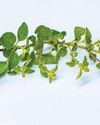
The Gardener
Golden Oregano
Origanum vulgare ‘Aureum’, as its name suggests, is golden yellow in full sun and cool weather. These bright herbs are highly fragrant, with a classic oregano taste and aroma, and are often used in the kitchen for pasta and pizza. In summer, the yellow leaves will be covered with small pink and purple flowers.
1 min
July/August 2025
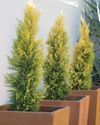
The Gardener
Potting up a conifer
Conifers generally are well-behaved plants with interesting, evergreen foliage and mostly formal and neat growth habits. This makes them stately candidates for roomy containers.
1 mins
July/August 2025
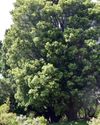
The Gardener
Enduring and venerable trees
There cannot ever be a good reason not to plant a tree, and somewhere there is just the right tree for you...
3 mins
July/August 2025
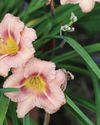
The Gardener
Daylilies make a comeback
Daylilies are making a comeback in 2025 with even more shapes, twists, ruffles, pleats, picotees, curves, and stunning colours and colour combinations. There are singles and doubles, big and small flowers, each unique, and yes, they only last a day! They do, however, have another flower bud just behind that one, ready to show off the next day.
1 min
July/August 2025
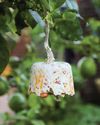
The Gardener
How to make a fat ball
Some birds love a fat ball in winter to boost their energy levels. These are easy to make and a fun project to do with the kids.
1 min
July/August 2025
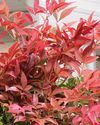
The Gardener
The Princess and Obsession
It only takes two wonderful modern hybrids of old garden favourites to prepare a garden and containers for an unforgettable spring performance.
1 mins
July/August 2025
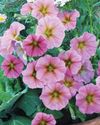
The Gardener
Pink and pretty
Pink colour shifters with hot appeal...
2 mins
July/August 2025

The Gardener
GROW the WALL
If you want lots of flowers in plantable concrete retaining wall blocks or lush stems and foliage cascading over dry stone walls, we have good plant suggestions for you!
5 mins
July/August 2025

The Gardener
Winter indoor plant care
Winter can be a tough time for your houseplants; a drop in natural light, drier air, and cold drafts can all influence their lush appeal. As plant lovers, spending more time indoors in winter creates opportunities to keep a close eye on your leafy companions and make some changes to avoid these common winter blues.
1 min
July/August 2025
Translate
Change font size
